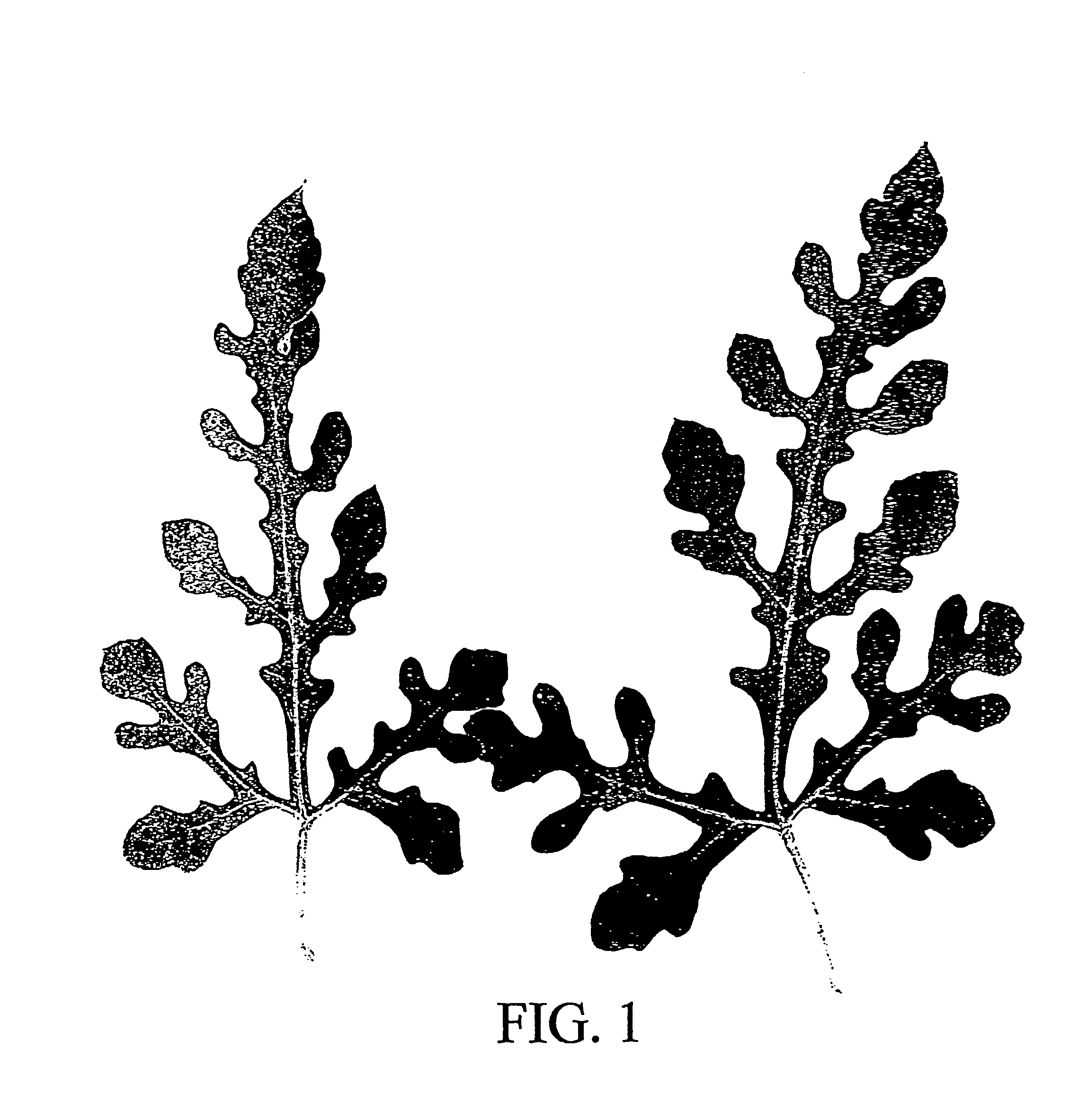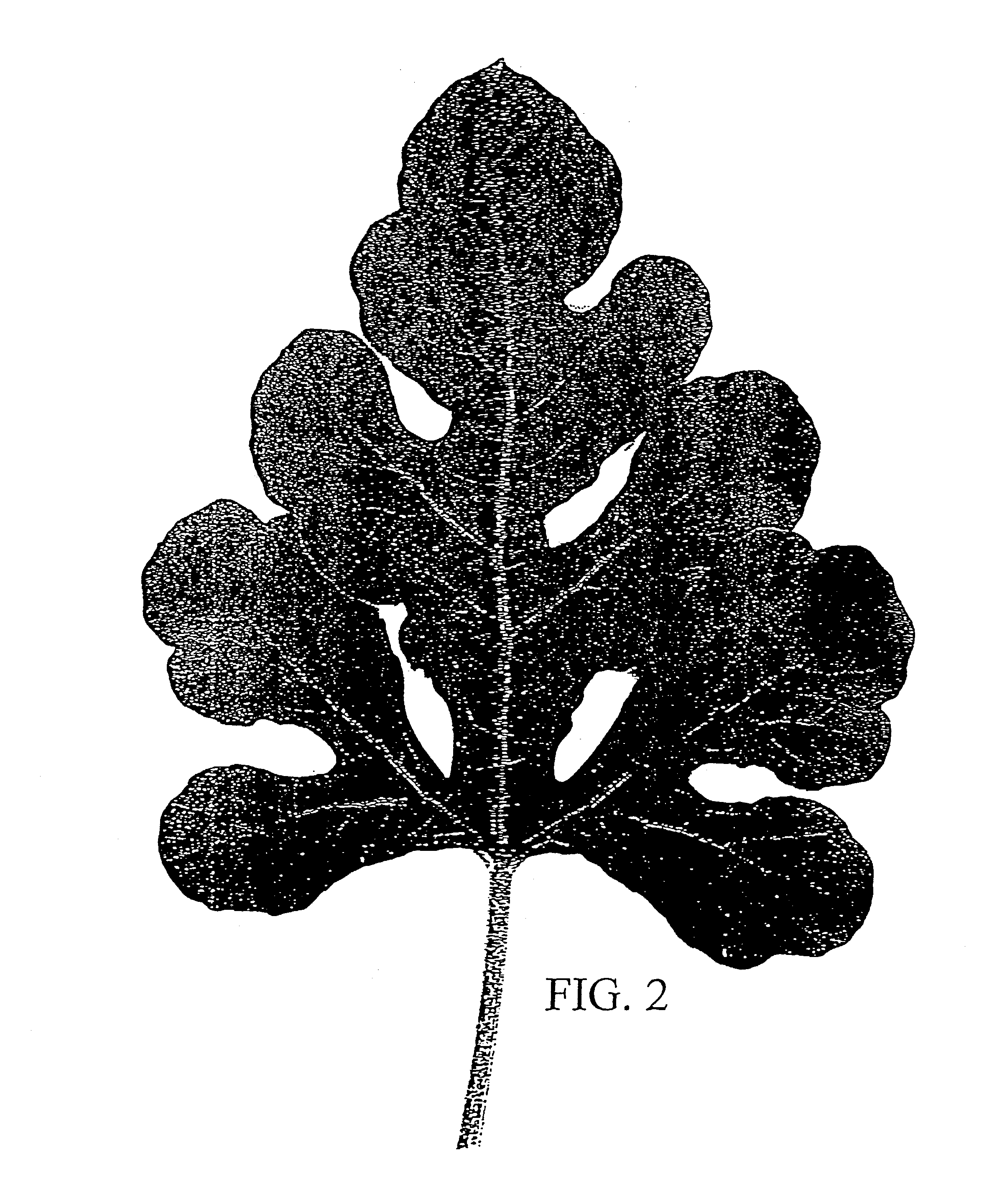Method for producing triploid, seedless watermelon
a watermelon and seedless technology, applied in the field of watermelon breeding, can solve the problems of reducing future yields and observing the lower total yield of marketable fruit compared to a commercial pollenizer line, and achieve the effects of enhancing pollenizer, enhancing pollenizer, and increasing seedless watermelon yield
- Summary
- Abstract
- Description
- Claims
- Application Information
AI Technical Summary
Benefits of technology
Problems solved by technology
Method used
Image
Examples
example 1
[0054]Triploid watermelon plants are planted in parallel rows 7 feet apart and 3 feet apart within each row. However, the enhanced diploid watermelon plants are planted in a narrow row 3.5° wide (½ the width of the triploid rows) between every second and third triploid row. For example, rows A and B are two consecutive rows of triploids, each 7-foot wide. Row C is a diploid row that is 3.5 feet wide. Row D and E are the following two 7 foot wide rows of triploids, followed by the 3.5-foot wide row F of diploid plants. This pattern is repeated across the width of the field. Because the diploid row is narrower according to the method of the invention, the distance between rows B and D is 10.5 feet instead of the traditional distance of 14 feet. Using this ratio of 1 pollenizer row for every 2 triploid rows (1:2), 33.3% of the field would normally be used for the pollenizer plants. Reducing the width of the pollenizer row according to the method of the invention by one-half, the gain o...
example 2
[0055]Triploid watermelon plants are again planted in parallel rows 7 feet apart and 3 feet apart within each row. As in Example 1, the enhanced diploid watermelon plants are planted in a narrow row 3.5° wide, but are planted between every third and fourth triploid row. For example, rows A, B, and C, are three consecutive rows of triploids, each row being 7′ wide. The following row D is a diploid, row that is 3.5 feet wide. Row E, F, and G are the following three rows of triploids, all 7 feet wide, followed by a 3.5 foot wide row of enhanced pollenizer plants. This pattern is repeated across the width of the field. Because the diploid row is narrower according to the method of the invention, the distance between rows B and D is again 10.5 feet instead of the traditional distance of 14 feet. Using this ratio of 1 pollenizer row for every 3 triploid rows (1:3), 25% of the field would normally be used for the pollenizer plants. Reducing the width of the pollenizer row according to the ...
example 3
[0056]Triploid watermelons are planted in parallel rows 8 feet apart and 3 feet apart within each row. The enhanced diploid watermelon plants are planted in a narrow row 4.0 feet wide (½ the width of the triploid rows) between every second and third triploid row. For example, rows A and B are two consecutive rows of triploids, each 8 foot wide. Row C is a diploid row that is 4.0 feet wide. Row D and E are the following two 8 foot wide rows of triploids, followed by the 4.0 foot wide row F of diploid plants. This pattern is repeated across the width of the field. Because the diploid row is narrower according to the method of the invention, the distance between rows B and D is 12.0 feet instead of the traditional distance of 16 feet. Using this ratio of 1 pollenizer row for every 2 triploid rows (1:2), 33.3% of the field would normally be used for the pollenizer plants. Reducing the width of the pollenizer row according to the method of the invention by one-half, the gain of space for...
PUM
 Login to View More
Login to View More Abstract
Description
Claims
Application Information
 Login to View More
Login to View More - R&D
- Intellectual Property
- Life Sciences
- Materials
- Tech Scout
- Unparalleled Data Quality
- Higher Quality Content
- 60% Fewer Hallucinations
Browse by: Latest US Patents, China's latest patents, Technical Efficacy Thesaurus, Application Domain, Technology Topic, Popular Technical Reports.
© 2025 PatSnap. All rights reserved.Legal|Privacy policy|Modern Slavery Act Transparency Statement|Sitemap|About US| Contact US: help@patsnap.com


